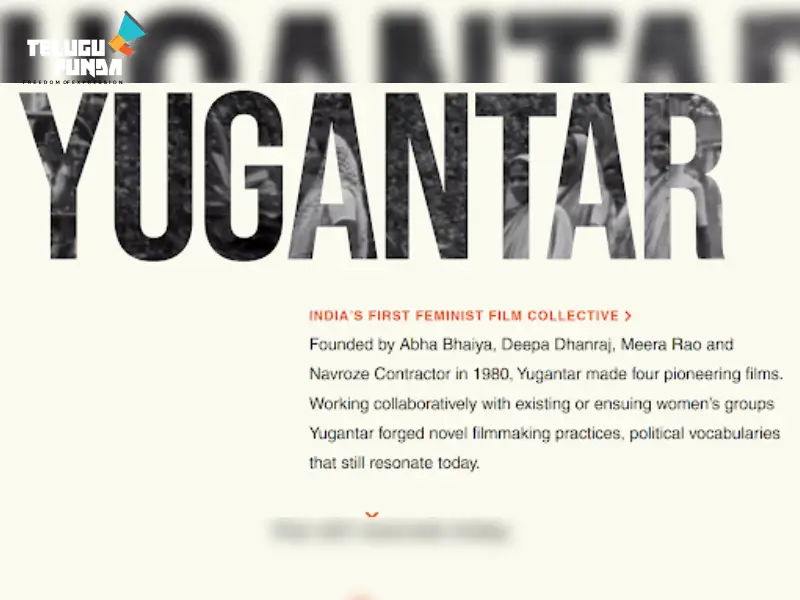Feminism, the subject which is widely spoken but least understood in its truer sense, has been the interest of “progressive” filmmakers all over the world for all the right purposes. Yugantar is a film movement started by four filmmakers across states to promote the feminist values and worker’s exploitation by ‘masters’.
The Yugantar is supposed to be India’s First Feminist Film Collective, as they claim. This collective was founded by Deepa Dhanraj, Abha Baiya, Navroze Contractor and Meera Rao in 1980. They have collectively produced four short films dealing with issues of workers exploitation, environmental conservation, patriarchal oppression and
What Were The Four Movies Yugantar Made?
As their name, Yugantar Collective, suggests, the four short films of length around 30 minutes were collectively produced by Deepa Dhanraj, Abha Baiya, Navroze Contractor and Meera Rao.
- Molkarin / Maid Servent (1981), Pune.
- Tambaku Chaakila Oob Aali / Tobacco Embers (1982), Nipani, Karnataka.
- Idi Katha Maatramena / is this just a story? (1983), Hyderabad
- Sudesha (1983), Uttarakhand.
Out of these four, let’s revisit Idi Katha Maatramena / is this just a story? To have a glimpse at the range of societal issues that were addressed in the film at domestic level that unfortunately resonates till date.
Feminism, Is it Just a Story?
Lalitha, plays the unnamed housewife of a typical household of 1980s. Unfortunately, it might be the same condition for women even today. However, if the things today are not better, the things back in those days were even much worse. Therefore, it is important to observe the realistic cinema that Yugantar made.
Idhi Katha Maatramena? is the first pure fictional story. Yugantar often makes semi-documentary, semi-fictional narratives. This format works better for the thematic subjects Yugantar takes up. But, who can tell it is a fictional story when the story of Lalitha is also a story of women we might see often. It might be technically a fiction. This short film is the undramatised reality of aspirational women stuck in patriarchal households.
The Ironies of Patriarchy.
The customary practices vary from the prescribed framework of thoughts by either elders or holy books and real life practices. Patriarchy was never propagated, but only practised by default without disturbing the status quo even an inch. So, the unchallenged practice of patriarchy resulted in so many ironies to the level of designating it as hypocrisy.
Upon the shout-cry for a Tea from the Hall, Lalitha serves Tea obediently to serious-looking newspaper reading patriarchs (men) of the house. The orders for Chai doesn’t come only from the patriarchs, but also from the women with such a mindset. The hypocrisy of the ‘problems of women can only be understood by women’ is also challenged by Yugantar here as Lalita’s mother-in-law herself is a cause of problems in her life’s little happy moments like watching a cinema once in a while.
The birth of a girl child in the house is called Lakshmi, meaning Prosperity. But, in reality, the birth of a girl child is a mourning day in the house. Lalita is left alone on her hospital bed only to be attended by her mother-in-law who proudly felt that the first-born are always men in their lineage. She feels that the cry of a baby girl is a disturbance to her pooja. The husband feels that her cry is destroying his listening experience of songs in Radio. This hypocritical treatment of women at local level is exposed through this film of our society– the same society that often preaches to the globe about women’s dignity that it never offers,
The biggest irony that exposes the hypocrisy of men talks more about the economics of that time than the gender dynamics of their age. Lalitha is discouraged from pursuing BA by not giving her the fees by her husband. “This house is not run on your income alone”, he snubs her off. After her first girl child, she feels like giving up her job. Because, she alone works for herself, for her baby, for the household. When she communicates this to her husband, he says, “Do you want to eat for free now?” This film beautifully builds the hypocrisy of men’s ego that doesn’t acknowledge women’s efforts, yet reap the benefits shamelessly.
Follow Telugu Funda on trending Social Media Platforms for more Cinema, OTT, Political, And Sports updates










